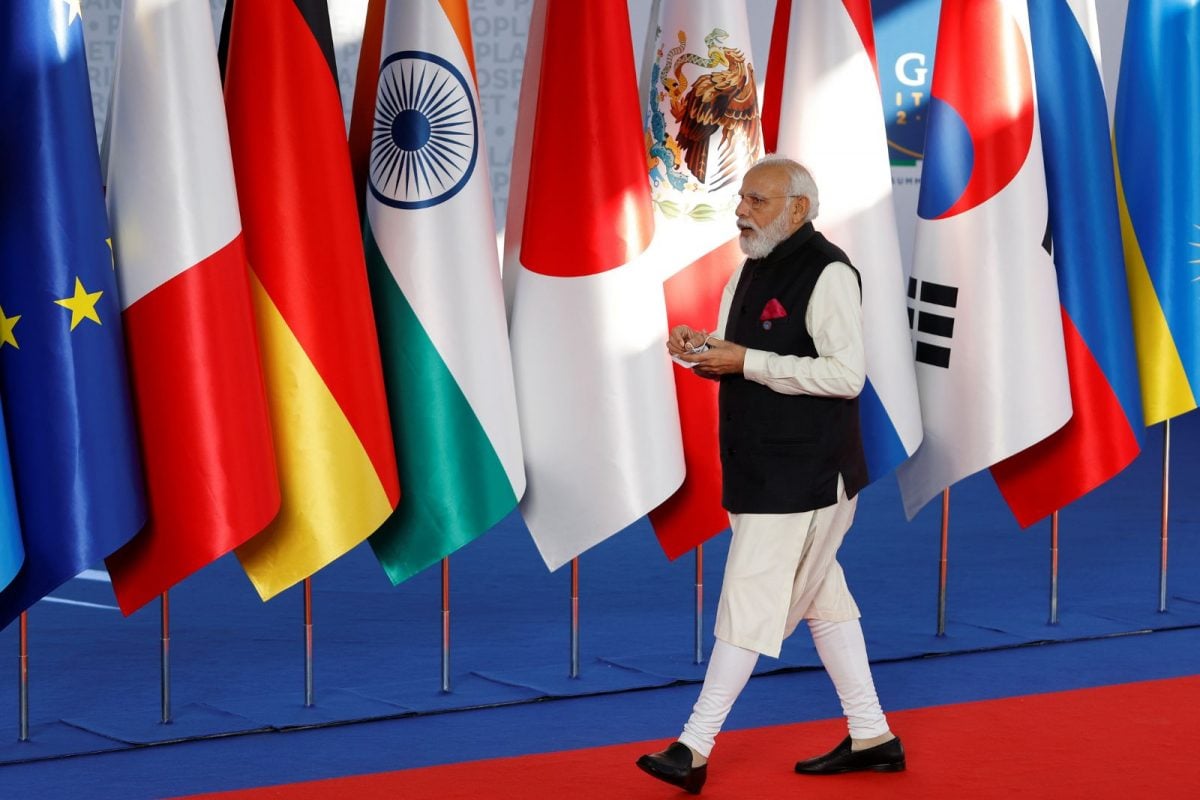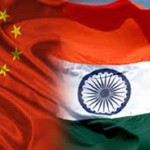
The outcome of the 17th G20 summit level meeting on 15-16 November at Bali will be of vital interest to India as it takes over the G20 presidency from Indonesia. The harbingers are not very reassuring as regards the challenges that India will face to make its presidency a success.
The Ukraine conflict has created an almost unbridgeable rift between the G7 and Russia. Relations between the US and China have sharply deteriorated, with heightened economic and military tensions. This has already adversely affected the G20 deliberations under the Indonesian presidency.
The 2008 financial crisis could not be contained by the G8 alone; it required a broader international effort. The G20 emerged as a forum of policy coordination in order to achieve global economic stability and sustainable growth, as well as to promote financial regulations that would reduce risks and prevent future financial crises, apart from creating a new financial architecture. Looking at the situation today one can reasonably say that there is regression instead of progress in this regard. The geopolitics of the Ukraine conflict is proving to be highly disruptive for the global economy.
Russia was expelled from the G8 in 2014 after its annexation of Crimea. Its invasion of Ukraine in February 2022 has had far-reaching consequences for the global community. The raft of sanctions imposed on Russia goes against the G20’s central purpose. These sanctions have been imposed both unilaterally by the US and collectively by the US, UK and the European Union. The US has weaponised finance and the dollar to punish Russia to the point of visualising its economic collapse. Russia’s energy sector, linked strongly to Europe, has been targeted, causing world-wide turbulence. Russia has been expelled from the SWIFT payment system, its foreign exchange reserves have been frozen, the assets of private Russian individuals have been seized, and so on. All this is hardly consonant with building a new financial architecture or promoting new financial regulations.
All these steps have been taken without taking into account the interests of the non-G7 members of the G20, apart from the developing world as a whole. The upsurge in oil prices has imposed severe economic costs on energy importing countries, including India. Pressure not to buy discounted Russian oil makes no sense from the point of view of energy hungry India. The G7 move to impose a price cap on Russian oil risks to further disrupt the oil market, potentially causing an inordinate rise in oil prices should Russia withhold some of its production from the world market, as it threatens to do. The energy shocks in Europe and elsewhere are, in addition, adversely impacting the climate change agenda, as countries reopen coal fired power plants or reliance on coal to meet energy requirements becomes an inevitable choice.
Legitimate trade with Russia has been disrupted because of difficulties in making payments in US dollar, euro or other hard currencies. Countries are resorting to alternative methods of payments, be it barter or using national currencies. This trend will continue with all its implications for the hegemony of the US dollar. Supply chains, already disrupted by the pandemic, have been disrupted further because of sanctions. Food and fertiliser shortages have resulted, with dire consequences for grain importing developing countries, especially in Africa. Inflationary pressures have built up globally. The rise in US interest rates is affecting economies across the globe. The debt burden on developing economies is piling up.
The G7 is seeking to revert to the role it played before the 2008 financial crisis as a grouping of the world’s advanced economies to coordinate global economic policy and governance, influence global trends, deal with international security issues, energy policy, address transnational issues and emerging global crises. However, it is no longer possible for the G7 to play this role today as there is dispersal of both economic and political power within the global system. China, as the second largest economy and the biggest exporting country in the world, is not a member of the G7, as is Russia with its massive energy and other natural resources. India, now the world’s fifth largest economy, is not a member either, though it attends G7 summits as an invitee, along with some other select countries. The manner in which Saudi Arabia has not only resisted US pressure to increase oil production in order to lower the price of oil, but has joined OPEC+ to actually cut oil production, citing the need to control price volatility as reason, shows the limits of G7’s capacity to “coordinate global economy policy”. Qatar reportedly has resisted European efforts to provide gas to Europe without long-term gas contracts in place.
Much of the G7 and India’s concerns relating to resilient or trustworthy supply chains, weaponising interdependence, connectivity projects based on universally recognised international norms, good governance, rule of law, openness, transparency, debt sustainability, etc, are directed at China’s projects. The issue of indebtedness of poor countries has also a linkage with China’s exploitative policies in Africa. The West uses the instrument of coercive sanctions to further its geopolitical objectives irrespective of how that affects the global economy and the interests of third countries. The weaponising of finance by the US and the hegemony of the US dollar are issues of concern to the wider international community. These are legitimate subjects for G20 discussions but can hardly be put on the agenda as it will either pit the West against the rest or China will be opposed. On climate change issues the US-China dialogue has ceased, which is not a positive development in a widder international perspective.
It is in this background of all these issues that the G20 summit will take place in Indonesia. How successful it will be in substantive terms is open to question. It is not certain that President Vladimir Putin will attend. Ukrainian President Volodymyr Zelenskyy has been invited because the West wants to give him as much visibility as possible in every possible forum for purely political reasons. The Ukraine issue risks derailing the summit proceedings as the West will want a condemnation of Russia’s aggression against Ukraine, as an absence of that will be seen as a political defeat, whereas Russia and China will oppose any such inclusion in the communiqué. It is of course possible to include the views of both sides as a way to paper over fissures.
A foretaste of this problem was experienced when the G20 Foreign Ministers met at Bali on 7-8 July 2022 on the theme “Building a more peaceful, stable and prosperous world together” with sessions on “Strengthening Multilateralism” and “Food and Energy”. Both these themes are at the forefront of international concerns. However, with multilateralism under threat to the point that the 75th anniversary of the UN in 2020 was devoted to reinvigorating it, expecting a consensus on its revival at Bali under the shadow of the Ukraine conflict was unrealistic. With the food and energy crisis triggered by the Ukraine conflict and diametrically opposed views about who caused it, any consensus on addressing the double crisis consensually at Bali was again not realistically possible. No wonder the Foreign Ministers meeting ended without a joint communiqué and even a group photograph. Already at the G20 Finance Ministers meeting in Washington D.C. in April, the G7 countries had boycotted Russia. At the Foreign Ministers meeting at Bali it was Russia’s Foreign Minister who walked out in protest at the “frenzied” condemnation of Russia by the G7 countries as “aggressors, invaders, occupiers” for its invasion of Ukraine.
This lack of consensus has bedevilled other G20 meetings at Bali. The meeting of the G20 Finance Ministers and Central Bank Governors on 15-16 July concluded with the G20 Chair’s Summary, not a negotiated text. The 22-23 September meeting of Trade and Investment Ministers also concluded not with a joint communiqué but with G20 Chair’s Summary which talks of resilient, sustainable and inclusive growth, and the opportunities offered by digital transformation to achieve this. It talks of more sustainable trade and investment, the impact especially on weak and vulnerable developing countries of supply chain disruptions, increased food and energy prices, World Trade Organisation reform, trade contributing to the achievement of Sustainable Development Goals, as well as supporting increased resilience for Covid-19 and future pandemics. It further speaks of increased participation of developing and Least Developing Countries in Global Value Chains, boosting MSMEs’ international competitiveness, sustainable and inclusive investments for Global economic recovery. Many of these are areas where a common ground can be found by the G20 members and get reflected in the summit document.
The meeting in Washington D.C. on 12-13 October of G20 Finance Ministers and Central Bank Governors with six items on the agenda: Global Economy, International financial Architecture, Financial Sector regulation, Infrastructure Investment, Sustainable finance, Sustainable Taxation, also concluded with the G20 Chair’s Summary, indicating the inability to agree on a negotiated text.
India has already indicated what its priorities will be under its G20 presidency. We will get a clue from the Bali summit about the lay of the land ahead of us and how much success we can achieve. It will be a good opportunity for us to showcase India. We will no doubt bat for the global south, with focus on food, fertiliser and fuel shortages, debt sustainability, climate change finance, environment related issues, development funding, multinational development banks, etc.
The fact that we have maintained neutrality on the Ukraine issue will help us to play a credible bridging role during our presidency between the West and others and pursue the agenda we have in mind, hoping that the Ukraine issue will begin to get defused during the course of our presidency.




